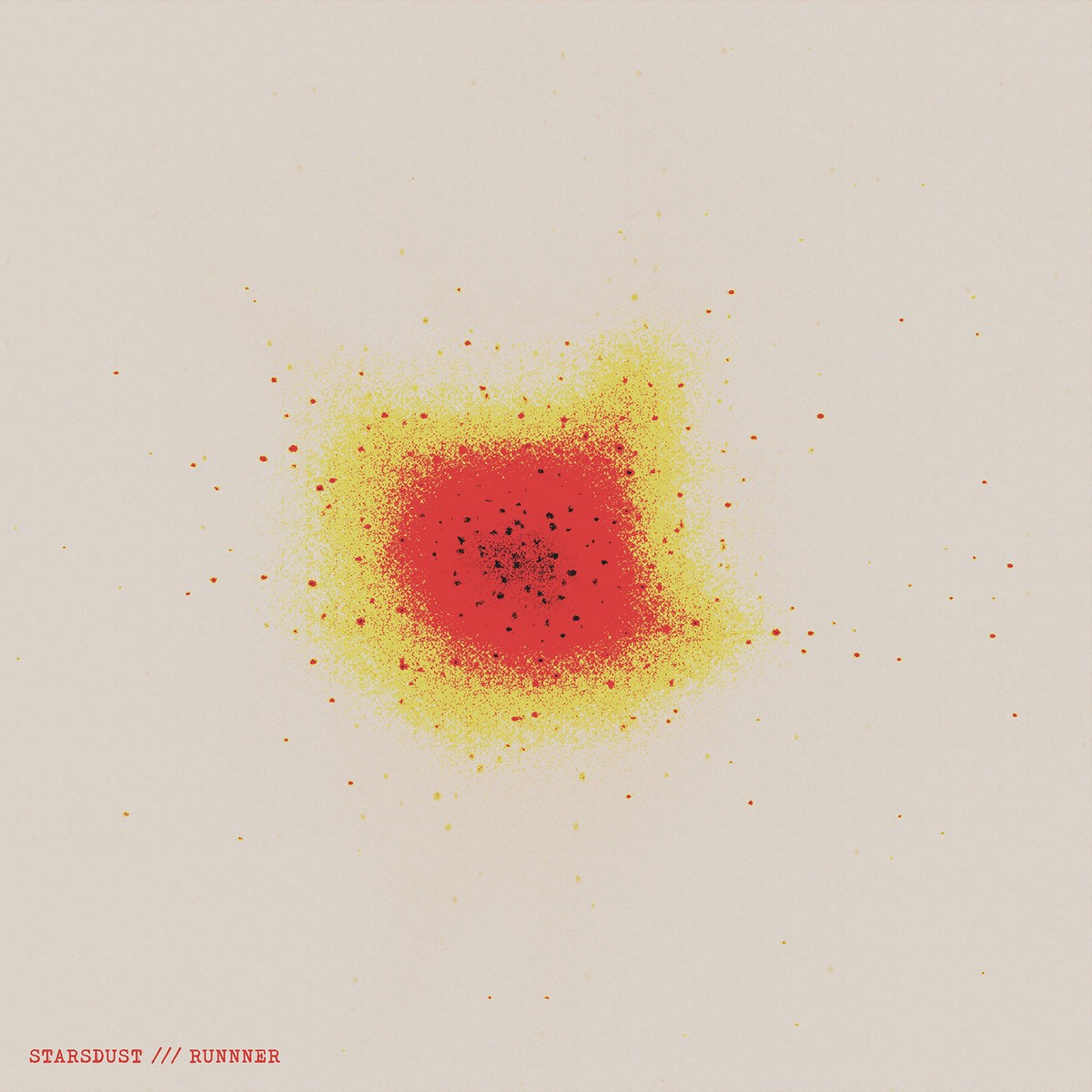Runnner
Starsdust
RUN FOR COVER
Starsdust is the torn achilles of records. That may sound harsh, but I think it’s an assessment that Noah Weinman—the songwriter behind Runnner—would support, and not just because Weinman literally produced the record in question with a ruptured achilles. Starsdust is all about constraints, pointed and intentional, but surely hindering nonetheless. It’s as much a compendium to last year’s Like Dying Stars, We’re Reaching Out as an original piece, though even that fact is splintered and obscured. Starsdust is not only Runnner’s first entirely instrumental record, but it also features not a single moment of original audio, every sound a repurposed stem from his previous LP which he pitched, flipped, stretched, and chopped until unrecognizable. This is, in its purest form, an exercise in creative constraint, making it both frustrating and understandable to find it not quite hold up as a standalone album.
By its very nature, Starsdust is meant to be experienced as a whole, and Weinman seems keenly aware of this fact. Though each track is given only a number as a name, this is not simply a sketchbook put to record—there’s real intention to how things are arranged here. The basis for this is Weinman’s use of percussion. To call any of these 12 recordings purely ambient would probably be a misnomer, but there are certainly some tracks which embrace percussion far more than others, and the way they’re arranged throughout serves as effective mile markers along the way. They’re also among the most effective songs on the records—“two” with its skittery, thudding undercurrent, “four” with its swaying pulse, “six” with its collision of warped string plucking and throbbing bass. While these moments certainly make an impact, there are just as many that fall short in that regard: neither background music nor demanding attention.
Ultimately, Starsdust is best examined from a wide angle. Like Dying Stars is a record with plenty to recommend, and Weinman a songwriter clearly still revving his creative engine. While that album already ranked among his most textured and mature work, Starsdust only bolsters the notion that he has more up his sleeve than one might have expected in his largely acoustic early days. Where this fits into Weinman’s larger project as Runnner might not be clear at this point, but taken at face value, there’s plenty to enjoy here, even if it might not transcend its status as experimental oddity.









